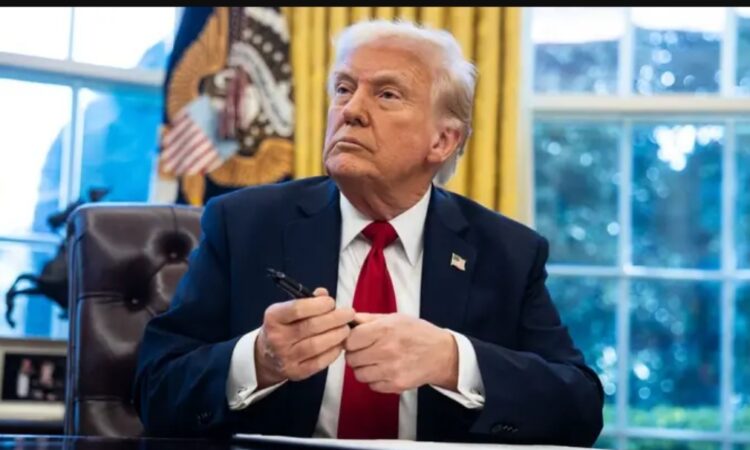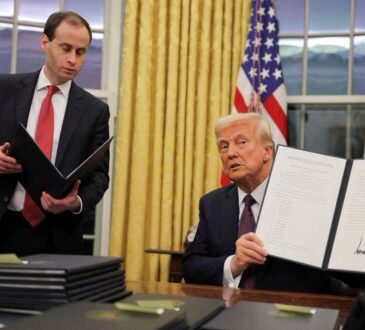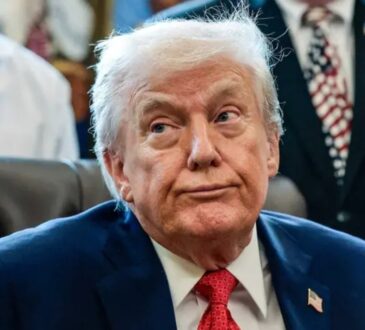
President Donald Trump’s latest economic offensive has triggered a full-blown trade crisis with America’s closest allies. The administration’s sudden imposition of 25% tariffs on all foreign auto imports – including vehicles from long-standing partners like Canada and the European Union – has sparked immediate retaliation and threatens to unravel decades of trade cooperation.
The move hit particularly hard in Canada, where Prime Minister Mark Carney responded swiftly with $42 billion in counter-tariffs targeting U.S. goods. “This goes beyond ordinary trade disputes,” Carney stated in an emergency address. “We’re witnessing an unprecedented assault on the economic partnership that has benefited both our nations for generations.” The Canadian leader framed the situation as nothing less than a threat to national sovereignty, calling it “the most significant crisis of our lifetimes.”
Domestic critics were equally scathing. Senator Bernie Sanders took to social media to lambast what he called Trump’s “self-destructive isolationism.” In a blistering post, the progressive leader wrote: “After centuries of friendship, this administration has managed to turn our closest neighbor into an adversary through sheer economic malpractice.”
The controversy deepened when Trump appeared to conflate the European Union – a 27-nation bloc – with individual countries in a Truth Social post threatening “far larger tariffs” if the EU cooperated with Canada. The gaffe fueled fresh criticism about the president’s grasp of international affairs, with one anti-Trump group dubbing him “the dumbest president in history.”
Industry analysts warn the tariffs could send shockwaves through the global economy. Automakers face immediate pressure as the new taxes threaten to raise vehicle prices by thousands of dollars, while manufacturers relying on cross-border supply chains scramble to adjust operations. The move comes at a particularly sensitive time, with many economies still recovering from pandemic-era disruptions.
Perhaps most significantly, the trade offensive represents a fundamental break with traditional U.S. economic diplomacy. Where previous administrations worked to strengthen multilateral ties, Trump has embraced what allies see as economic bullying. The approach plays well with his political base but risks permanent damage to relationships that have underpinned American prosperity for decades.
As the EU considers its response and Canadian officials prepare for prolonged tensions, one question looms largest: whether this marks a temporary trade spat or the beginning of a more profound realignment in global economic relations. With Trump showing no signs of backing down, businesses and consumers on both sides of the border are bracing for what could become a defining economic battle of the decade.




